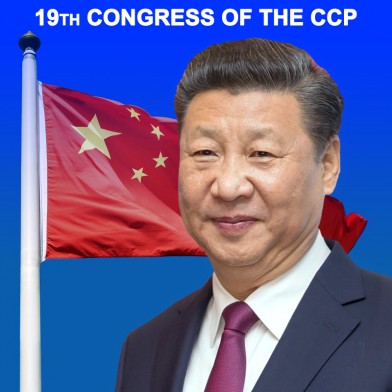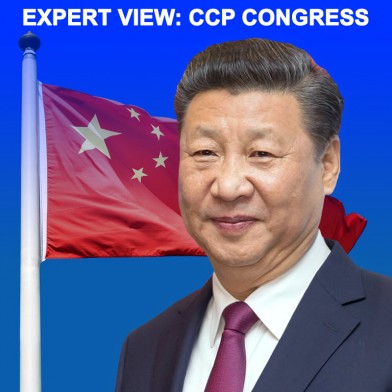The 19th National Congress of the Chinese Communist Party – an event that happens only every five years – begins on 18 October. China's leadership will be selected at the five-day event, which will be attended by 2287 delegates from around China. The Asia Media Centre spoke to Xiang Gao (Lecturer at Eastern Institute of Technology, Auckland) about the biggest issues.
What is the significance of the 19th National Congress?
Xiang Gao: “A few officials in the Politburo Standing Committee, the party's highest ruling body, may retire after this Congress based on age restrictions, unless they are provided an exemption. This 19th Congress will determine the structure and succession of China’s top leadership in next five years or even longer. The 19th Congress will also set a tone for the Third Plenary Session of the 19th CPC Central Committee in 2018, which will usually establish China’s economic agenda for the next five years.”
What are the biggest issues to watch for?
- Reform of Chinese state-owned enterprises (SOEs);
- Discussion on less orientation towards the market;
- the Belt and Road Initiative (BRI);
- the appointment President Xi’s successor; and
- the anti-corruption drive.
What is the 'China Dream'; will Xi mention it again?
“President Xi first mentioned "China Dream" when he just assumed his leadership in the 18th Congress in 2012. This notion of the China Dream has later been interpreted by Xi with different emphasis, such as military strength, environmental protection, Chinese young people, Chinese overseas residents, and so on.
“Even though it is loosely defined, the China Dream can be summarised as the objective of creating and sustaining a moderately prosperous society by 2021 (the centennial of the CPC), and rejuvenating the Chinese nation by 2049 for the centennial of the PRC.
“The promotion of the China Dream in the past a few years indicates China’s growing confidence in both domestic issues and international affairs. The rhetoric of "dream" is very appealing to the Chinese public. We would expect to see this notion addressed again in the 19th Congress.”
What do you expect in terms of economic or financial issues?
“A commitment to economic growth, the creation of a more market-based economy, and a renewed commitment to tackling environmental issues, such as the increased use of renewable sources of energy.”
What is the makeup of women and minorities in the Congress?
“According Xinhua, there are 551 female delegates out of a total of 2287 delegates. The female representation rate is 24.1 percent, which is lower than those in the lower or single House of New Zealand, United Kingdom, and Canada; and higher than those in the United States, India and Japan. And 264 delegates belong to ethnic minority groups. The minority representation rate is 11.5 percent, which is higher than the 8 percent of the minority population rate in China. Forty-three out of 55 ethnic minority groups have their delegates in the current Congress. The representation rates of women and ethnic minority groups have slightly increased since the last Congress in 2012.”
What have domestic and international media been saying about the Congress?
“The Chinese domestic media has emphasised on President Xi’s core leadership, the selection processes of delegates, and security and safety of the delegates. The provincial media has also covered the local economic and environmental achievements, which are considered important indicators of local decision making success.
“The international media has been much interested in the succession and structure of the Party leadership and the reorganisation of Chinese military.
“In New Zealand, the Chinese Herald has covered the selection process of the delegates. General New Zealand media has mainly focussed on Xi’s leadership and the selection of the new members of Politburo Standing Committee.”
Read other expert views by New Zealand commentators here.
– Asia Media Centre

